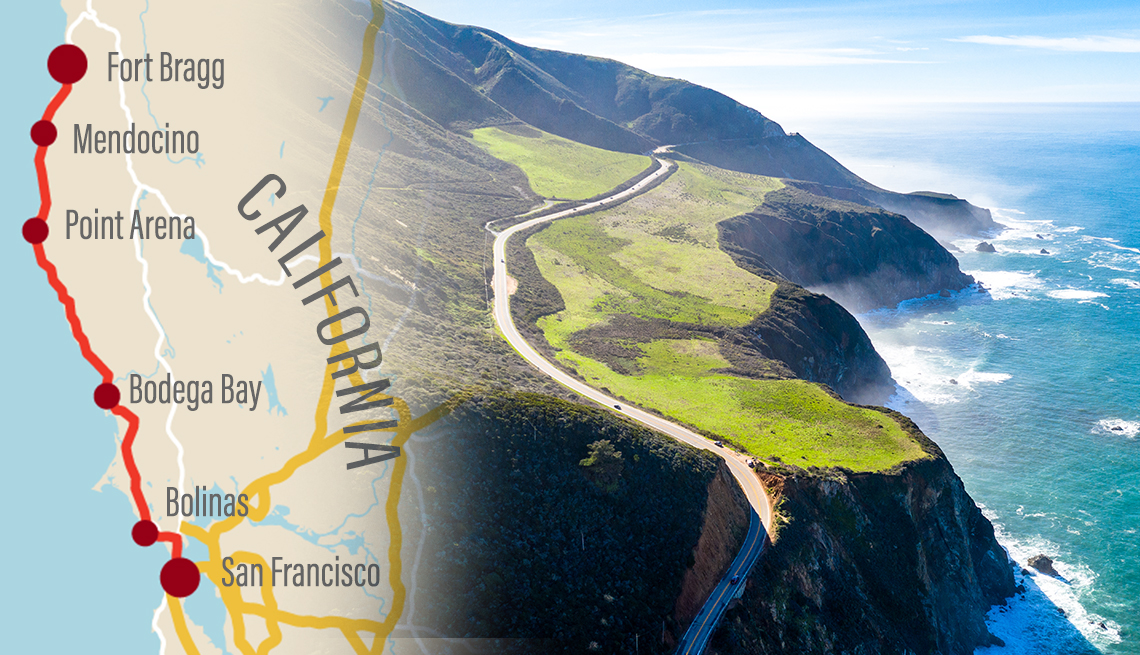Littoral Rights : Unlocking the Coastal Benefits
Littoral rights refer to the legal rights of property owners to use and access bodies of water adjacent to their land. These rights include the use of the water for recreational purposes or to harvest resources such as fish or shellfish.
Additionally, property owners may have the right to build structures such as docks or piers that extend onto the water. It is important for property owners to understand their littoral rights in order to properly exercise and protect their interests.
By knowing the extent of their rights, property owners can enjoy the benefits and privileges that come with living on or near a body of water.
The Importance Of Littoral Rights
In the realm of property law, littoral rights hold significant importance for anyone who owns or plans to purchase waterfront property. Understanding and asserting these rights can make a world of difference when it comes to navigating the complexities of coastal real estate. In this section, we will define littoral rights and explore their historical significance.
Defining Littoral Rights
Littoral rights refer to a set of legal rights granted to individuals who own property adjacent to a body of water, such as a lake or an ocean. Unlike riparian rights, which apply to properties adjacent to flowing bodies of water like rivers or streams, littoral rights specifically pertain to properties that border non-flowing bodies of water. These rights grant the property owner certain privileges and responsibilities, allowing them exclusive access and use of the adjacent waterbody.
Historical Significance
The historical significance of littoral rights can be traced back to the origins of common law, where the concept of property ownership and usage rights evolved. As societies developed and coastal regions became strategic hubs for trade and commerce, the importance of defining and protecting littoral rights grew. Clear and well-defined littoral rights provided stability and reassurance in property ownership, leading to economic prosperity for coastal communities.
To fully grasp the historical significance, it is essential to consider how littoral rights create a balance between individual ownership and public interest. These rights ensure that waterfront property owners have access to the water as long as their activities do not interfere with public navigation or use. This balance encourages responsible stewardship of coastal resources while granting the property owner the benefits that come with owning waterfront property, such as recreational opportunities, aesthetic value, and potential economic gains.
| Benefits of Littoral Rights | Responsibilities of Littoral Rights |
|---|---|
|
|
Overall, understanding and asserting littoral rights are crucial not only for property owners but also for coastal communities and the general public. These rights provide a framework for responsible and sustainable development while preserving the natural beauty and accessibility of waterfront areas. By recognizing the importance of these rights, individuals can make informed decisions regarding waterfront property and contribute to the preservation of our coastal environments.

Credit: www.aarp.org
Understanding Littoral Rights
Littoral rights are legal rights granted to landowners whose properties abut a body of water, such as a lake, river, or ocean. Understanding littoral rights is crucial for both property owners and potential buyers, as these rights can have a significant impact on the use and enjoyment of waterfront properties. In this section, we will explore what littoral rights entail, the different types of littoral rights, and their implications.
What Are Littoral Rights?
Littoral rights are the legal rights granted to owners of land that border a body of water. These rights vary depending on the specific laws and regulations of the jurisdiction in question. In general, littoral rights include the exclusive right to access and use the adjacent body of water and the ownership of the land up to the high-water mark. This means that the owner has control over the area between the high and low water marks, which can include private beachfronts, docks, and other amenities.
Types Of Littoral Rights
There are two main types of littoral rights: public and private. Public littoral rights refer to the rights granted to the general public to access and use navigable water bodies, such as rivers and lakes. These rights ensure that everyone can enjoy the water and engage in activities like swimming, fishing, and boating.
On the other hand, private littoral rights are specific to the adjoining landowner and allow for exclusive use and enjoyment of the waterfront property. These rights typically include the right to build a dock, maintain a private beach, and install other structures on the water. However, it’s important to note that even private littoral rights may be subject to certain restrictions imposed by local regulations or zoning laws.
Benefits Of Littoral Rights
The concept of littoral rights refers to the rights and privileges that property owners have in relation to bodies of water, such as lakes, rivers, and oceans, that are adjacent to their land. These rights can provide numerous benefits to landowners, communities, and the economy as a whole.
Economic Benefits
Littoral rights offer significant economic advantages to property owners and the surrounding community. These benefits include:
- Property Value Increase: Owning land with littoral rights can greatly increase the value of the property. Properties with access to bodies of water are highly sought after and often command higher prices in the real estate market.
- Recreational Opportunities: The ability to engage in various recreational activities on the water, such as boating, fishing, and swimming, attracts potential buyers and visitors. This, in turn, drives local economic growth as businesses catering to outdoor enthusiasts thrive.
- Waterfront Development: Littoral rights encourage the development of waterfront properties, including hotels, resorts, marinas, and restaurants. These businesses provide employment opportunities and boost the local economy through tourism and hospitality.
- Increased Tourism: Areas with access to bodies of water tend to attract tourists, who contribute to the local economy through spending on accommodations, dining, shopping, and recreational activities.
Recreation And Tourism Opportunities
Littoral rights present abundant recreation and tourism opportunities, which enhance the quality of life for residents and attract visitors from far and wide. Some of the key benefits include:
- Unparalleled Scenic Beauty: The natural beauty of lakes, rivers, and oceans not only provides awe-inspiring views but also creates a tranquil setting for recreational activities. People often seek these serene environments to relax and rejuvenate.
- Water-Based Activities: Being in possession of littoral rights grants owners and visitors the chance to partake in a multitude of water-based activities. Whether it’s kayaking along a pristine river or jet skiing on a lake, the options are endless.
- Memorable Experiences: Whether it’s taking a leisurely sunset cruise, reeling in a trophy fish, or lounging on a sandy beach, littoral rights allow individuals to create unforgettable memories and connect with nature in unique ways.
- Environmental Education: Bodies of water provide opportunities for education and conservation efforts. Coastal visitors can learn about marine ecosystems, participate in wildlife preservation initiatives, and develop an understanding of the importance of sustainable practices.
Challenges And Controversies
Littoral rights, known as the rights of landowners along the shoreline, have been subject to various challenges and controversies throughout history. These issues primarily revolve around conflicts with property owners and environmental concerns.
Conflicts With Property Owners
One of the primary challenges associated with littoral rights is the conflict that arises between property owners and public access. In many cases, landowners feel that their rights are being violated by public use of the shoreline. This often leads to disputes and legal battles.
Property owners argue that allowing public access to the shoreline infringes on their privacy and poses a security risk. They claim that the presence of strangers on their property can lead to damage, theft, or other issues. Additionally, some landowners believe that excessive public access can negatively impact the value of their property.
On the other hand, proponents of public access argue that it is essential for people to be able to enjoy and appreciate the natural beauty of the shoreline. They believe that denying public access restricts the rights of individuals to enjoy public resources. Balancing the rights of landowners while ensuring public access is a delicate task that often leads to heated debates.
Environmental Concerns
Another significant controversy surrounding littoral rights is the impact on the environment. Shorelines are crucial habitats for various plant and animal species, and unrestricted development along the coast can have detrimental effects.
One environmental concern is the erosion caused by construction and land alterations. Coastal development often involves dredging, filling, and the construction of seawalls, which disrupt the natural flow of water and sediment. These activities can accelerate erosion, destroy habitat, and harm marine life. Striking a balance between development and conservation is a constant challenge in coastal areas.
In addition to erosion, pollution is a pressing environmental concern. Urban and industrial run-off, as well as recreational activities, can introduce harmful substances into the shoreline ecosystem. These pollutants can harm plants, animals, and even degrade water quality. Protecting the delicate balance of coastal ecosystems while allowing for development requires careful planning and environmental stewardship.
Overall, the challenges and controversies surrounding littoral rights underscore the complex balance between property rights, public access, and environmental conservation. Finding solutions that respect the interests of all stakeholders is essential for sustainable coastal development.
Protecting And Managing Littoral Rights
Protect and manage littoral rights to ensure the protection and sustainable use of coastal areas. Access to shorelines and water bodies is essential for both environmental preservation and public enjoyment. This article explores the importance of protecting and managing littoral rights for the benefit of all.
When it comes to the ownership and use of coastal property, understanding and protecting littoral rights is crucial. Littoral rights refer to a landowner’s rights and privileges regarding the use and enjoyment of adjoining bodies of water, such as rivers, lakes, and oceans. As these rights are subject to legal regulations and potential disputes, it is important for property owners to be aware of the legal framework and best practices for managing their littoral rights.
Legal Framework
The legal framework surrounding littoral rights varies depending on the jurisdiction and country. In general, these rights are based on the principle of public trust, which holds that bodies of water are owned by the public and the government has a duty to protect and manage these resources for the benefit of all.
Under this legal framework, property owners are granted certain rights, such as the right to access the water, the right to construct piers or docks, and the right to enjoy recreational activities on the water. However, these rights are not absolute and are subject to reasonable limitations to ensure the preservation of the environment and the rights of other individuals.
In order to navigate this legal framework and protect their littoral rights, property owners should consult with legal professionals who specialize in coastal property law. These experts can provide guidance on the specific rights and obligations that apply to their property and help resolve any disputes that may arise.
Best Practices
When it comes to managing littoral rights, following best practices is essential to ensure compliance with legal requirements and preserve the ecological balance of the coastal ecosystem. Here are some key best practices to consider:
- Maintain and preserve the property’s natural shoreline. Avoid unnecessary modifications that could disrupt the coastal ecosystem and impact the surrounding environment.
- Properly manage stormwater runoff to prevent erosion and protect water quality.
- Ensure the responsible use of beachfront areas. Implement measures to prevent littering, pollution, and disturbance of wildlife habitats.
- Comply with all permits and regulations when constructing or modifying any structures along the shoreline.
- Engage in proactive coastal conservation efforts. Participate in community initiatives aimed at preserving and restoring the health of coastal ecosystems.
By adhering to these best practices, property owners can protect their littoral rights while contributing to the sustainable management of coastal areas. It is crucial to stay informed about any changes in local regulations or environmental guidelines to ensure ongoing compliance and responsible stewardship of littoral rights.

Credit: www.worldbank.org

Credit: www.facebook.com
Frequently Asked Questions Of Littoral Rights
What Are Littoral Rights?
Littoral rights refer to the legal rights of landowners who own property adjacent to a body of water, typically a lake, river, or ocean. These rights include access to and use of the water, as well as the ability to build structures like docks or piers.
How Do Littoral Rights Differ From Riparian Rights?
Littoral rights are specific to properties adjacent to large bodies of water, while riparian rights are associated with properties adjacent to rivers or streams. The main difference is the type of water body involved, but both rights confer similar privileges and responsibilities.
What Activities Are Allowed Under Littoral Rights?
Under littoral rights, property owners are generally allowed to use the water for recreational purposes such as swimming, boating, and fishing. They may also construct structures like docks or breakwaters, as long as they adhere to local regulations and obtain the necessary permits.
Can Littoral Rights Be Transferred Or Sold?
Yes, littoral rights can be transferred or sold separately from the property itself. This means that a landowner can sell their rights to another individual, who then becomes the new owner with full rights and responsibilities related to the water body.
Conclusion
Understanding the concept of littoral rights is crucial for coastal property owners. By having a clear understanding of their rights and responsibilities, they can effectively protect and maintain their property. From the ownership of land to access and use of water bodies, littoral rights play a significant role.
It is important to consult legal experts to ensure compliance with local laws and regulations. Proper knowledge and adherence to littoral rights will help property owners make informed decisions and safeguard their investments.
{ “@context”: “https://schema.org”, “@type”: “FAQPage”, “mainEntity”: [ { “@type”: “Question”, “name”: “What are littoral rights?”, “acceptedAnswer”: { “@type”: “Answer”, “text”: “Littoral rights refer to the legal rights of landowners who own property adjacent to a body of water, typically a lake, river, or ocean. These rights include access to and use of the water, as well as the ability to build structures like docks or piers.” } } , { “@type”: “Question”, “name”: “How do littoral rights differ from riparian rights?”, “acceptedAnswer”: { “@type”: “Answer”, “text”: “Littoral rights are specific to properties adjacent to large bodies of water, while riparian rights are associated with properties adjacent to rivers or streams. The main difference is the type of water body involved, but both rights confer similar privileges and responsibilities.” } } , { “@type”: “Question”, “name”: “What activities are allowed under littoral rights?”, “acceptedAnswer”: { “@type”: “Answer”, “text”: “Under littoral rights, property owners are generally allowed to use the water for recreational purposes such as swimming, boating, and fishing. They may also construct structures like docks or breakwaters, as long as they adhere to local regulations and obtain the necessary permits.” } } , { “@type”: “Question”, “name”: “Can littoral rights be transferred or sold?”, “acceptedAnswer”: { “@type”: “Answer”, “text”: “Yes, littoral rights can be transferred or sold separately from the property itself. This means that a landowner can sell their rights to another individual, who then becomes the new owner with full rights and responsibilities related to the water body.” } } ] }




